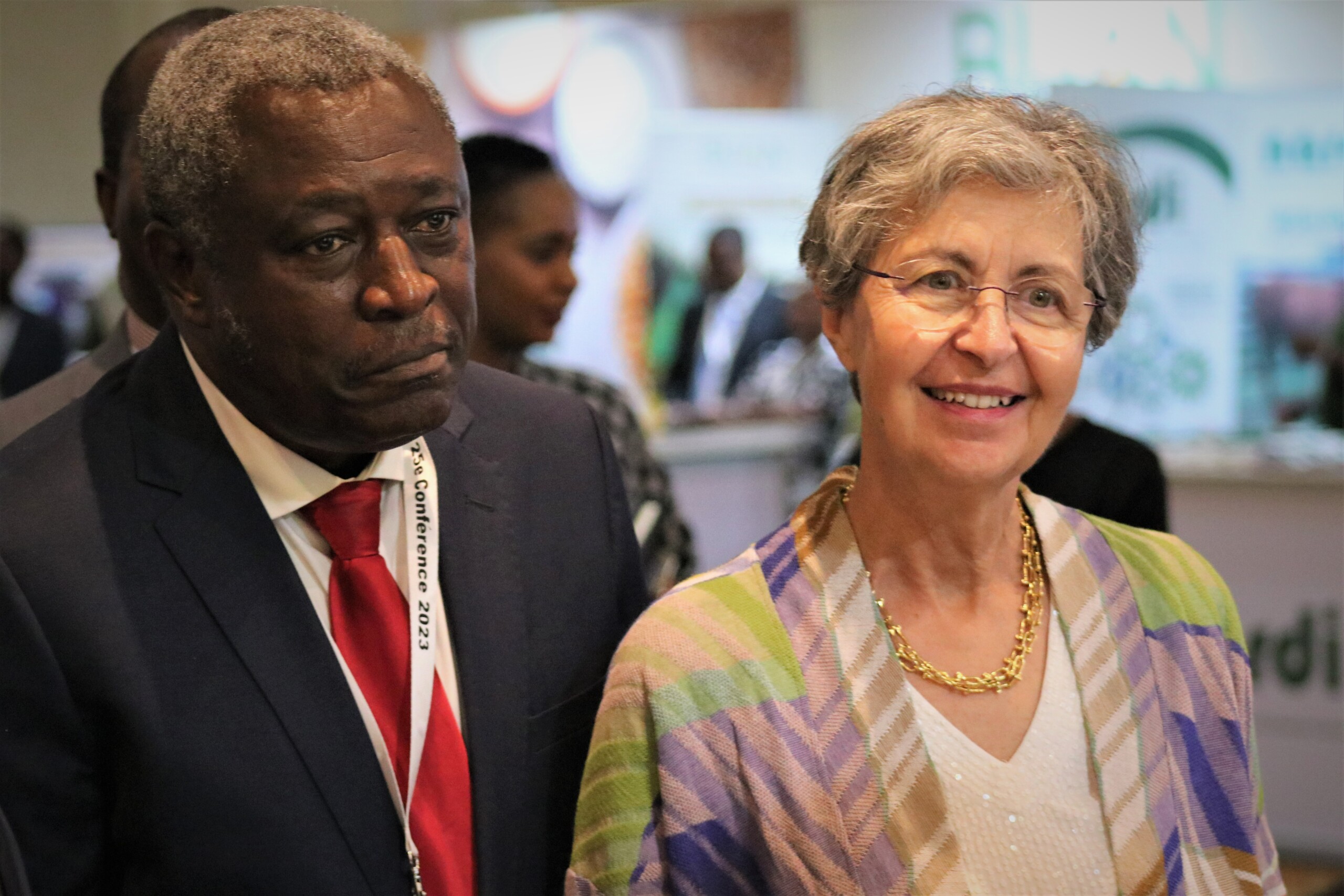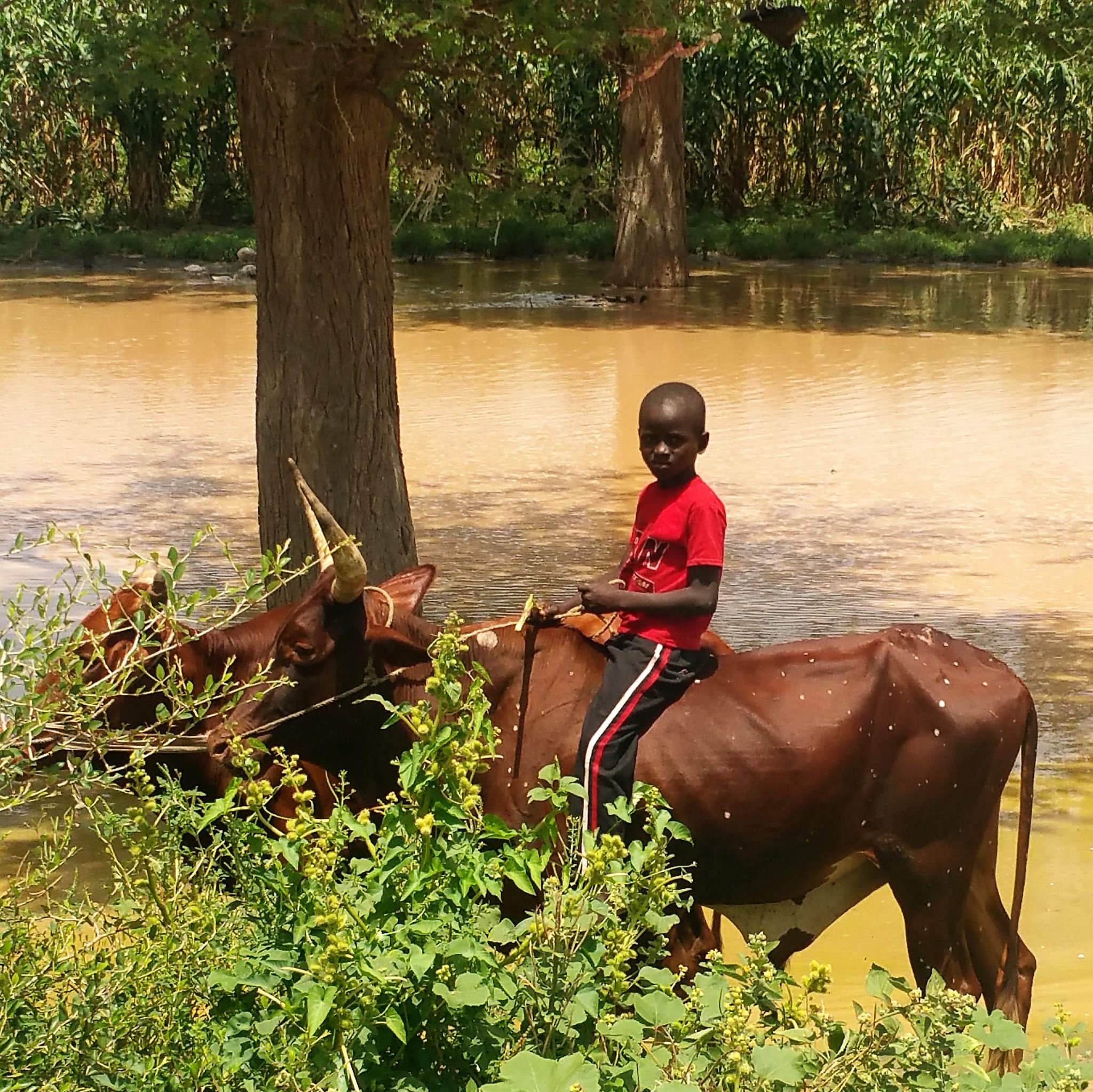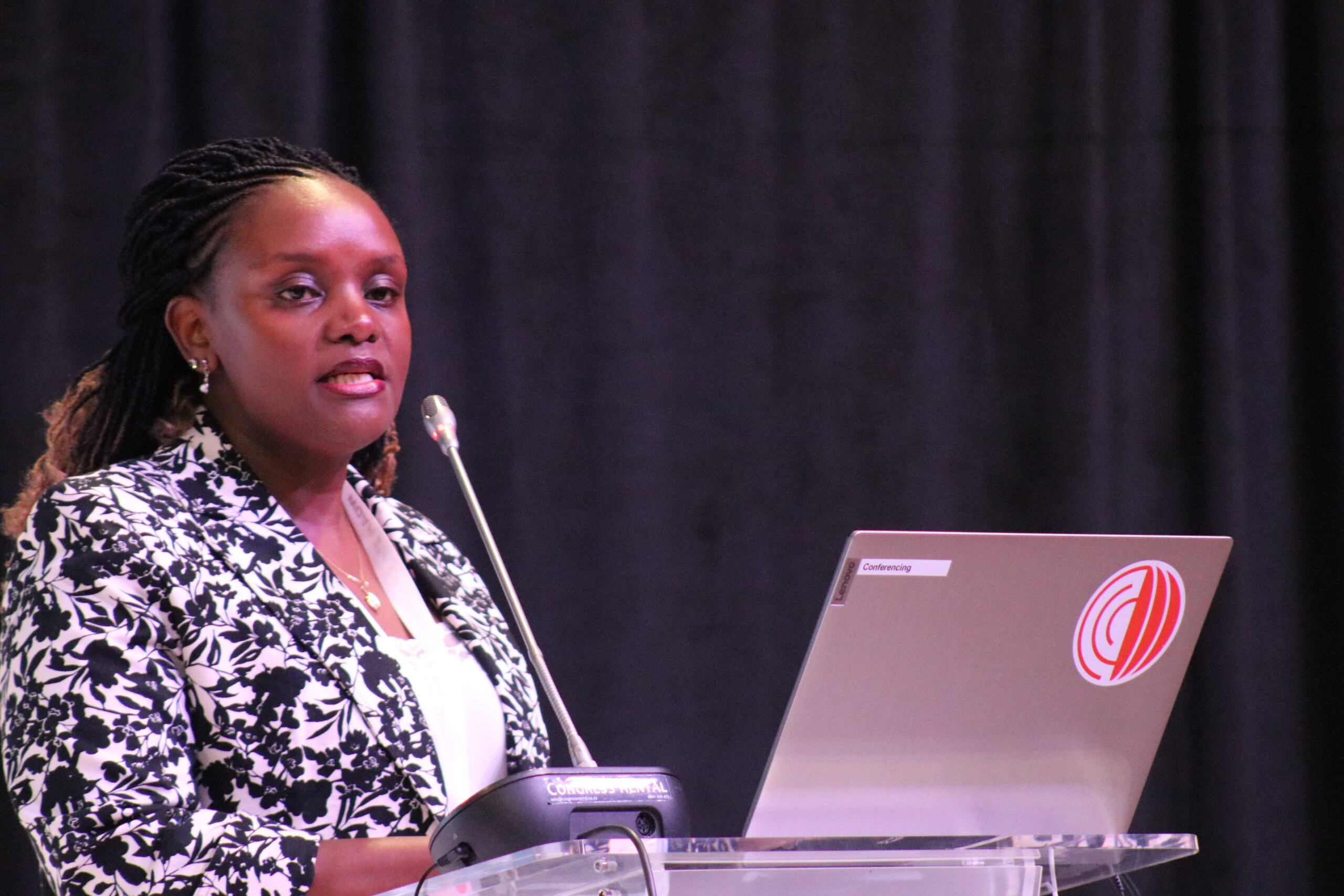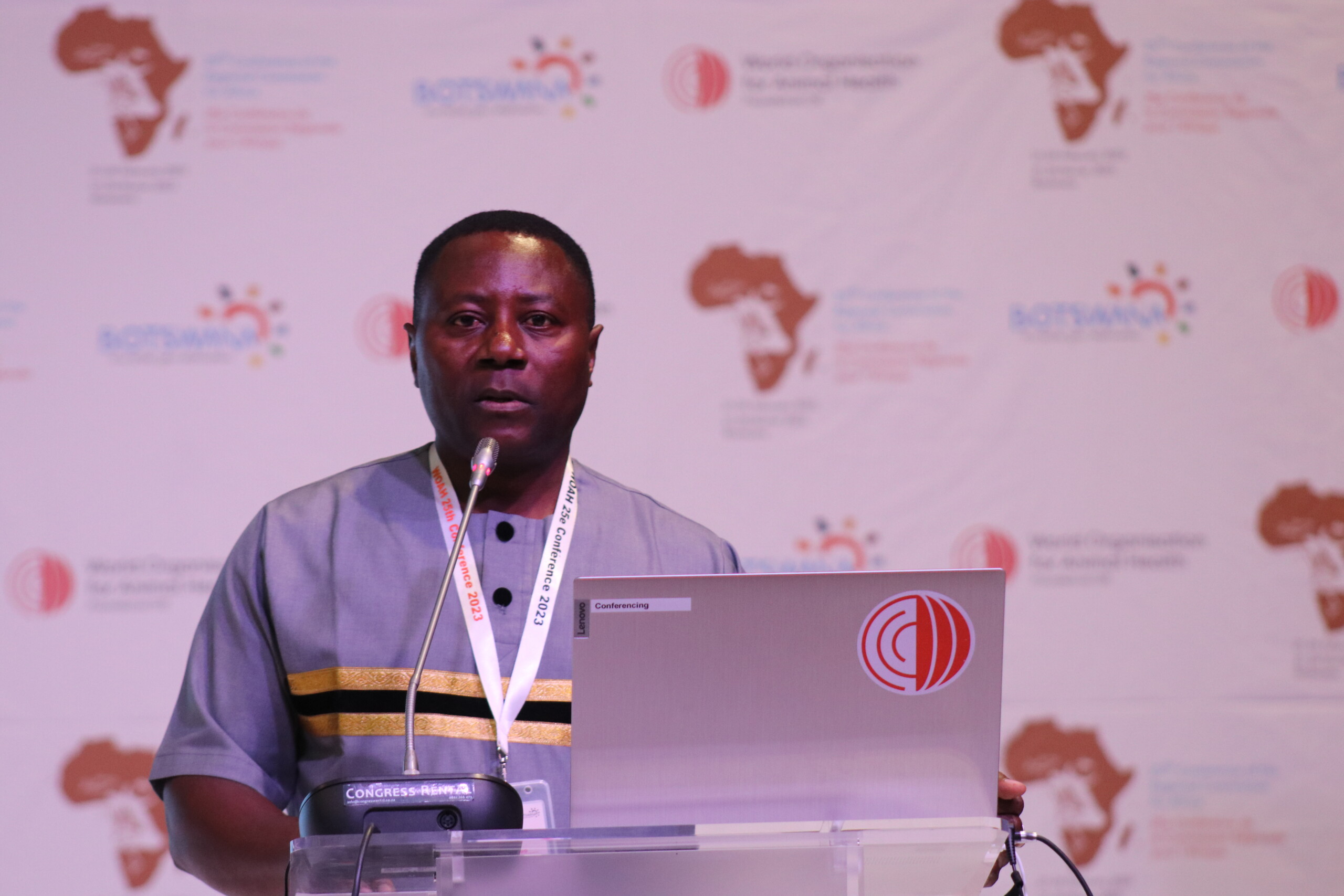
The World Organisation for Animal Health (WOAH), recently conpleted the Regional Commission for Africa Conference, bringing together high-level participants, representatives from One Health (OH) platforms in the region, Members (countries and territories) and experts from across the continent to engage and discuss on progress made in terms of prevention, preparedness and response to zoonotic diseases, such as avian influenza, Ebola virus disease, Rift valley fever and rabies.
Having learnt from COVID-19 pandemic, the validity of the One Health concept in understanding and confronting global health risks was underpinned. The One Health concept advocates for multisectoral coordination in prevention, preparedness and response efforts of priority zoonotic diseases (those that may transmit from animals to humans, or humans to animals).
Africa still bears a high burden of zoonoses, antimicrobial resistance and other public health threats at the animal-wildlife-human-environment interface. While reviewing the zoonotic disease situation on the continent, the increasing spread of emerging diseases as Rift valley fever and avian influenza across countries was noted, alongside the potential for their transmission to other continents, through trade and animal movement. The Organisation works in provision of international standards to enhance animal and wildlife health and welfare; these are fundamental in interrupting spillovers of zoonotic pathogens to humans and the environment. Members were reminded of the importance of timely notification of zoonotic diseases through WOAH’s WAHIS platform.
WOAH, together with its partners in the Quadripartite (the Food and Agriculture Organisation of the United Nations, FAO, the UN Environment Programme, UNEP, and the World Health Organisation, WHO), recently launched the One Health Joint Plan of Action (JPA), in recognition of the growing need to mitigate the impact of zoonoses on human and animal health, and livelihoods, noting that increased investments would result in the strengthening of health systems and a whole-of-society approach to prevent future pandemics.
While giving her remarks, Dr Chadia Wannous, WOAH’s Global Coordinator for One Health, emphasised the need to merge efforts through collaborations and partnership engagements, in a bid to strengthen the One Health approach by bringing together multiple sectors and actors at different levels to address drivers and pathways of threat in animal- human-environment interfaces.
To address zoonotic threats, Members should embrace One Health as a critical matter of priority as well as work to develop strategies that incorporate One Health in their countries. Countries such as Cameroon, Kenya and Senegal have made progress in the institutionalisation of One Health.
Dr. Lillian Wambua – One Health Programme Officer – Africa. Picture (c) P. Bastiaensen (woah) 2023.
Notably, Cameroon’s One Health platform, is also anchored at the highest level of government, in the Prime Minister’s office. Speaking to the Delegates at the Conference, Dr Conrad Nkuo from the Office of the Permanent Secretary of the National Programme for the Prevention and Control of Emerging and Re-emerging Zoonoses, Cameroon, asserted that their structure for One Health has enabled seamless coordination, communication and collaboration between government agencies and partners, facilitating multisectoral interventions at the human, animal, plant, and ecosystem interfaces.
Dr Matthew Muturi, Co-leader of the Zoonotic Disease Unit, the One Health platform in Kenya, highlighted that a shift from project-based to systems-based interventions was key to sustainable operationalisation of One Health in countries. The need to identify specific drivers and tailored interventions at national and sub national systems of government as part of institutionalization of One Health, especially in countries with devolved structures of government, as in the case of Kenya, was critical, he added.
Dr Papa Seck, Presidential Advisor on Animal Health, Livestock and Fisheries and Global Health Security, Senegal
The majority of African nations fall into the Low-Middle-Income Countries (LMIC) category. Therefore, funding and investments for One Health remains a crucial consideration to achieve sustainable progress at both national and regional levels. The involvement of funding institutions and donors (such as the World Bank), international organisations, and other partners, as well as engagement for sustainable funding sources at regional, national, and sub-national levels are needed in Africa.
Dr Franck Berthe, Senior Health Specialist and One Health Lead at The Pandemic Fund, hosted at the World Bank, provided Delegates with an overview of the World Bank’s engagement on One Health, including through analytical work and mobilising its financing mechanisms for LMICs. Delegates were invited to apply for the 1st round of funding and respond to the call for expression of interest of the Pandemic Fund (worldbank.org), which is a new multilateral financing mechanism dedicated for financing prevention, preparedness, and response to future pandemics.
Members also noted that budget allocations to One Health should be prioritized by countries in Africa, in order to maintain the momentum of operationalisation One Health in their countries.
Dr Franck Berthe, The World Bank Group
Members expressed the need for their governments to strengthen Veterinary Services to promote One Health efforts. This is a critical issue across the board where other departments seem to be prioritised. These challenges still exist in the multisectoral collaboration in the domains of interventions of the various actors of the One Health Platform.
Dr. Monique Eloit, WOAH Director General, encouraged Members to keep up the momentum and engage with the Organisation through the PVS Pathway Tool to update the status of Veterinary Services in their countries, in turn this will help our organisation advocate for increased investment and strengthening of Veterinary Services in Africa.
Members agreed that One Health is the most effective approach in addressing issues of public health and reaffirmed their commitment to adopt and operationalise the One Health Joint Action Plan (JPA), guidance released by the Quadripartite organisations, the Food and Agriculture Organisation of the United Nations (FAO), the UN Environment Programme (UNEP), the World Health Organisation (WHO) and the World Organisation for Animal Health (WOAH).
Nevertheless, while challenges still exist in the multisectoral collaboration efforts in the domains of interventions of the various actors of the One Health Platform. It remains clear that the common understanding of the definition of one health as defined in the Joint Plan of Action (JPA), elaboration of the six action tracks and the positioning of One Health interventions at the interfaces, comes to resolve some of the challenges faced. Members were encouraged to align their One Health efforts with the JPA, and work together towards contributing to improving global health security.
Below are interviews about crosscutting issues and highlights of country successes on One Health in Africa.
OH in Senegal - Dr. Papa Seck (English subtitles)
Financing One Health (in English)
OH in Cameroon (in English)
OH in Kenya (in English)




